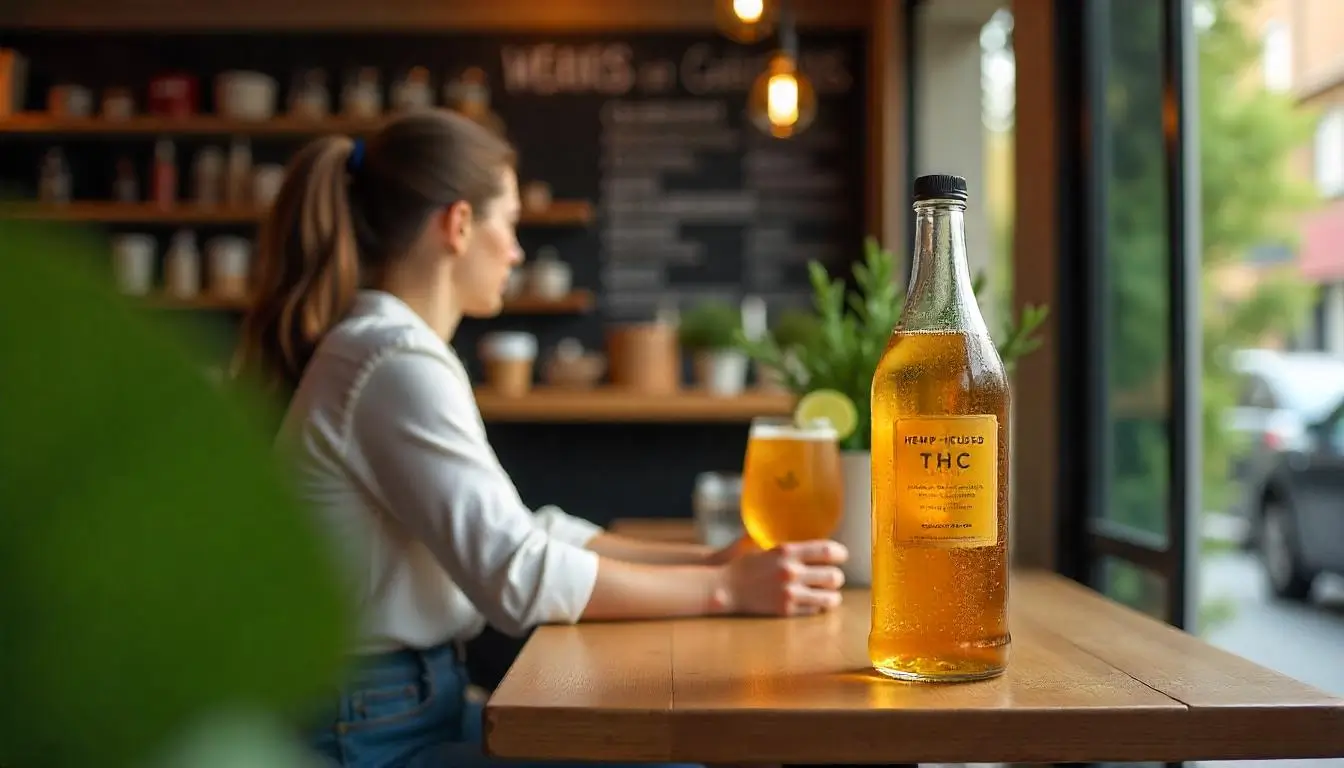A new wave of cannabis-infused beverages is reshaping the American beverage market, with hemp-derived THC drinks rapidly gaining popularity, especially in regions where traditional cannabis remains tightly regulated. These products are carving out a unique space, driven by changing laws, consumer preferences, and a growing demand for alcohol alternatives.
Hemp-Based Beverages on the Rise
The surge in hemp-derived THC drinks is fueled by recent legislative developments and shifting consumer habits. Once overshadowed by conventional marijuana products, these beverages are now emerging as go-to options for wellness-minded consumers. In states like Texas and across the Southeast, where regulated cannabis is largely unavailable, demand for legal, hemp-based alternatives is soaring.
Minnesota stands out as a leader in implementing clear regulations that allow the sale of cannabinoid-infused products. This legal clarity has opened the door for beverage makers to reach consumers seeking relaxation and stress relief without turning to alcohol. As more states follow suit, nationwide expansion looks increasingly likely.
Big Brands Enter the Fray
The growing appeal of hemp beverages has not gone unnoticed. Cannabis companies, including major players from Canada, are entering the U.S. market, targeting states with permissive hemp laws. These businesses are rolling out innovative product lines, often combining delta-9 THC with functional ingredients, to appeal to both cannabis enthusiasts and curious newcomers.
The shift reflects a broader industry trend: aligning with consumer interest in non-alcoholic wellness products that still offer a relaxing buzz.
Navigating a Complex Regulatory Maze
Despite the excitement, the hemp beverage market is not without challenges. Companies must navigate a patchwork of state laws, manage distribution logistics, and ensure consistent product quality. Frequent regulatory updates demand agility and compliance to maintain market access and consumer trust.
Still, strong consumer demand is encouraging businesses to tackle these obstacles head-on, seeing opportunity in the complexity.
Wellness Drives Consumer Choices
What’s fueling consumer interest? A growing preference for alternative wellness products that promote relaxation, better sleep, and pain relief without the downsides of alcohol. Brands are responding with high-quality products and clear labeling to build trust in a space where consistency has sometimes been lacking.
This wellness-driven demand is encouraging a shift in how companies position their products, no longer just recreational, but functional and health-forward.
Innovation Becomes Key to Standing Out
To remain competitive, brands are innovating with bold flavor profiles, natural ingredients, and lifestyle-driven branding. The focus isn’t just on what’s in the bottle; it’s on creating an experience. From product design to marketing campaigns, companies are appealing to health-conscious and culturally savvy consumers looking for more than a standard drink.
The move toward functional ingredients aligns with broader trends in food and beverage, positioning THC-infused beverages as part of a holistic lifestyle.
Retail and E-Commerce Expand Access
Retail channels are quickly evolving. Hemp-derived drinks are showing up in both major retail chains and online stores. This hybrid approach, combining in-store presence with e-commerce, broadens access and supports repeat purchases.
Online platforms are also stepping up age verification to address concerns around underage sales, making responsible retail a shared industry priority.
A Promising Outlook
Analysts predict that the hemp beverage category is on track for rapid growth, with significant revenue potential as products move deeper into mainstream food and drink channels. Companies investing in scalable infrastructure and compliance stand to benefit the most.
The future of hemp-derived THC drinks lies at the intersection of wellness, technology, agriculture, and consumer lifestyle. As public interest grows, brands that combine innovation with trust-building practices are well-positioned to lead this next chapter in cannabis consumption.





